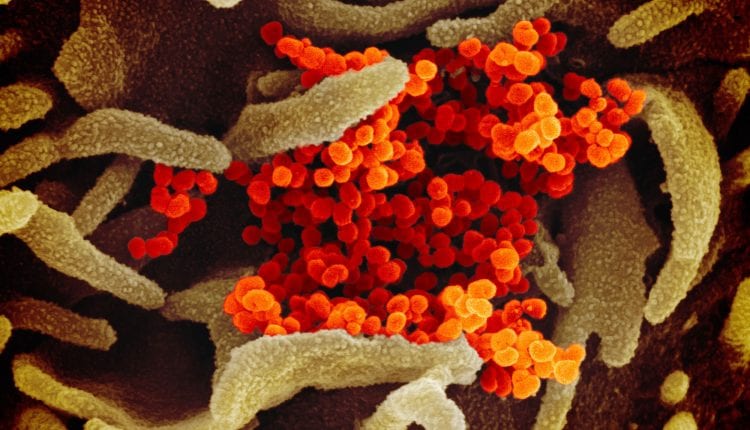
The latest figures from the Office of National Statistics Infection Survey shows that 98.4 percent of the adult population of England now carry antibodies against SARS-CoV-2, the specific virus that causes coronavirus (COVID-19), above a threshold of 179 nanograms per millilitre (ng/ml).
The figure doesn’t mean that these people are now immune to the disease; the presence of antibodies reflects those who have been vaccinated or have been infected in the past. This threshold is higher than the ONS’s previously reported standard threshold of 42 ng/ml.
To break the figures down, in England, 98.4 percent of the adult population (roughly 95 percent, with a margin of error between 98.1 percent and 98.6 percent) are estimated to have antibodies against SARS-CoV-2 at the 179 ng/ml threshold, in the week beginning 14th February 2022.
In Wales, the figure is 98.3 percent, in Northern Ireland, 98.1 percent, and in Scotland, 98.3 percent.
Children
Across the UK, the percentage of children who are estimated to have antibodies against SARS-CoV-2 at the 179 ng/ml threshold ranged from 93.9 percent to 94.7 percent for those aged 12 to 15 years and from 71.3 percent to 78.8 percent for those aged 8 to 11 years, in the week beginning 14 February 2022.
The percentage of adults who are estimated to have antibodies above the set level is regarded as high, though it refers only to individuals in private homes, and in Northern Ireland, the number of people sampled is low compared with England, Wales and Scotland; therefore, adults aged 50 to 69 years are included in the same age group, and those aged 70 years and over are included in the same age group.
All estimates are subject to uncertainty, given that a sample is only part of the wider population.
The analysis was produced in partnership with the University of Oxford, University of Manchester, UK Health Security Agency and Wellcome Trust, jointly led by the Office for National Statistics and the Department for Health and Social Care (DHSC) working with the University of Oxford and Lighthouse Laboratory to collect and test samples.
Study
The study measured the presence of antibodies in people who live in private households to understand who has had coronavirus (COVID-19) in the past, and the impact of vaccinations. It takes between two and three weeks after infection or vaccination for the body to make enough antibodies to fight the infection. Antibodies can help prevent individuals from getting the same infection again. If they do get infected, people with antibodies are less likely to have severe symptoms. Once infected or vaccinated, antibodies remain in the blood at low levels and can decline over time. The length of time antibodies remain at detectable levels in the blood is not fully known.
Antibody positivity is defined by having a fixed concentration of antibodies in the blood. A negative test result occurs if there are no antibodies, or if antibody levels are too low to reach a threshold at the time of testing. It does not mean that their antibody level is at zero or that a person has no protection against COVID-19. Additionally, there are other parts of the immune system that will offer protection, for example, a person’s T-cell response. This will not be detected by blood tests for antibodies. A person’s immune response is affected by a number of factors, including health conditions and age.
Equally, antibody levels are expected to decrease over time irrespective of vaccination or natural infection, especially when exposure to the virus is reduced. This is because our bodies stop making antibodies when they are not needed.
Threshold
The antibody threshold measured by the ONS survey is currently 179 nanograms per millilitre (ng/ml). This threshold is based upon research by academic partners, and used to determine the percentage of adults who are likely to have a strong enough antibody response to provide some protection from getting a new COVID-19 infection. Antibody levels below this threshold do not mean that a person has no antibodies or immune protection at all.
This antibody threshold was identified as providing a 67% lower risk of getting a new COVID-19 infection with the Delta variant after two vaccinations with either Pfizer or AstraZeneca vaccines, compared with someone who was unvaccinated and had not had COVID-19 before. It is unlikely that this threshold will provide equivalent protection against the Omicron variant, and the ONS will keep the threshold used in its analysis of antibodies under regular review.
Two time periods were analysed; when the Alpha variant was dominant in the UK (1st December 2020 to 16th May 2021), and when the Delta variant was dominant (17th May to 14th August 2021).
The survey results suggest that a combination of the vaccination program and natural antibody development is doing a good job of protecting the majority of the population against the worst effects of Covid-19; however, it does not guarantee that further variants of the disease will not arise and cause a future spike in infections.
See also: Your Child’s First 1,000 Days and the Important Role Nutrition Plays

























